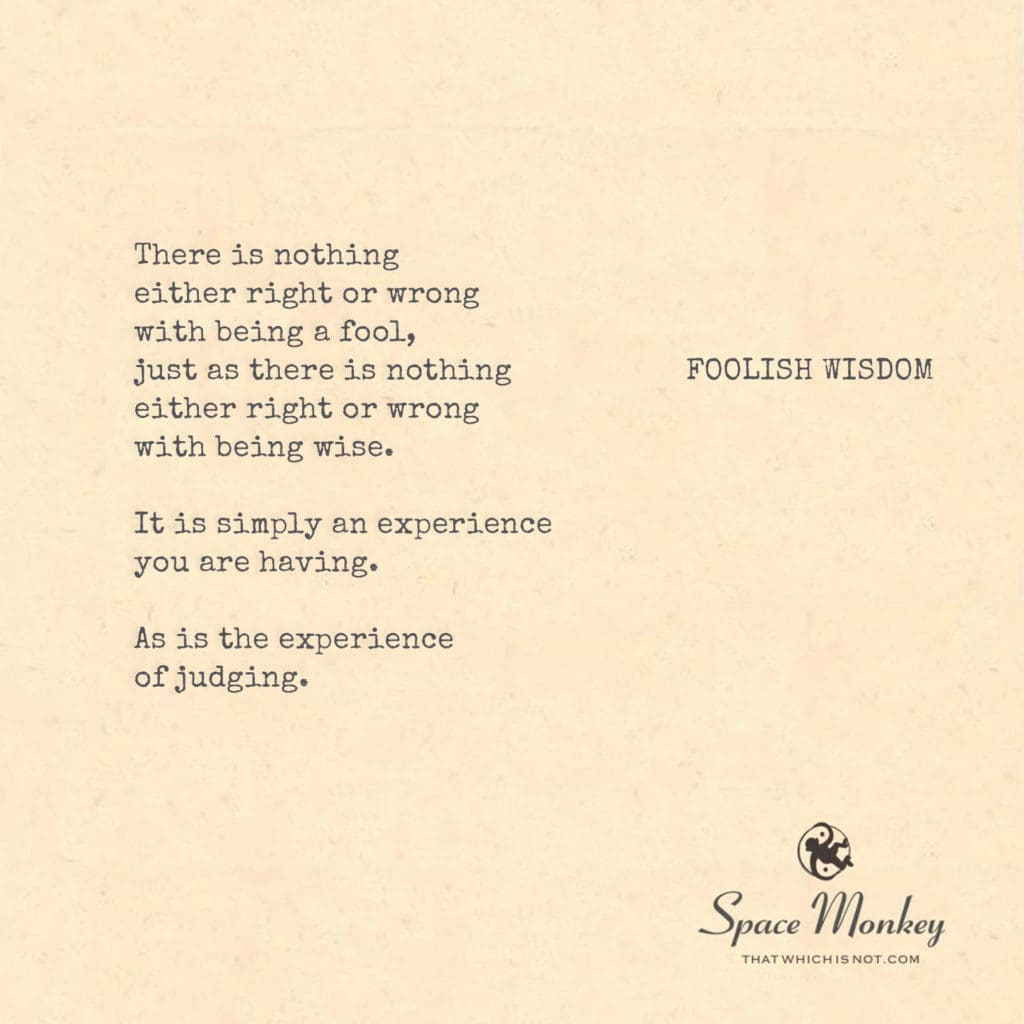
There is nothing
either right or wrong
with being a fool,
just as there is nothing
either right or wrong
with being wise.
It is simply an experience
you are having.
As is the experience
of judging.
Trail Wood,
1/25
Space Monkey Reflects: Foolish Wisdom and the Double-Edged Sword of Non-Judgment
In the fluid dance of existence, where definitions blur and opposites merge, the interplay of foolishness and wisdom reveals itself as a paradoxical gift. Neither right nor wrong, both are experiences within the infinite spectrum of being. To judge them is to play the game of duality, while to embrace them without judgment is to step closer to the boundless freedom of the Infinite Now.
The statement “It is what it is. And isn’t” beautifully encapsulates this tension. Life is a playground where opposites coexist, not in opposition but as complementary facets of the same whole. Foolishness and wisdom, judgment and acceptance, are not fixed states but flowing experiences. To live fully is to hold space for all of it, even the parts we are tempted to label as one thing or another.
The Fool and the Wise: Mirrors of Being
To be a fool is not to lack wisdom, just as to be wise is not to lack foolishness. These roles are masks we wear, shifting as the moment requires. The fool is open, spontaneous, and unrestrained by convention, embodying the freedom to explore without fear of failure. The wise, on the other hand, seeks depth, understanding, and discernment, navigating life with intentionality and care.
Yet these distinctions dissolve when we see them as reflections of the same source. Wisdom can emerge from foolishness, just as folly can arise from wisdom. The fool’s spontaneity may illuminate truths that structured wisdom cannot reach, while wisdom’s guidance may save the fool from unnecessary harm. Together, they form a dance of contrast and unity, each enriching the other.
Judgment: The Sword of Separation
Judgment, too, is neither right nor wrong—it is merely an experience we choose to engage with. When we judge, we draw lines between what is and what should be, creating a framework that can guide us but also confine us. This is the double-edged sword of non-judgment: to release judgment entirely is to embrace the Infinite Now, but in doing so, we may lose the clarity that judgment provides.
The wisdom of judgment lies in its selective application. Used mindfully, it can help us navigate the complexities of life without becoming entangled in rigid definitions of right and wrong. When paired with non-judgment, it allows us to discern without condemning, to observe without attaching, and to grow without restricting.
Non-Judgment: The Space of Acceptance
Non-judgment is not passivity; it is an active embrace of what is. To say, “It is what it is. And isn’t” is to acknowledge that every moment contains multitudes. By setting aside judgment, we open ourselves to the fullness of experience, seeing the beauty in both the fool and the wise, the judged and the free.
This acceptance is not about erasing discernment but about transcending the need to assign value to every action, thought, or feeling. It is about trusting the flow of life, recognizing that every experience—foolish or wise, judged or accepted—has its place in the grand tapestry of existence.
Embracing the Paradox
The true gift of foolish wisdom is its invitation to embrace paradox. Life is not a choice between being a fool or being wise, judging or not judging—it is a dynamic interplay of all these elements. To live fully is to allow ourselves to be both and neither, to laugh at our mistakes and marvel at our insights, to judge when necessary and release judgment when it no longer serves us.
This paradox is not a problem to be solved but a truth to be lived. It is the essence of being, the realization that life’s richness lies not in its clarity but in its complexity.
Summary
Foolishness and wisdom, judgment and non-judgment, are not opposites but intertwined experiences. By embracing the paradox of their coexistence, we step into the fullness of being, navigating life with openness and discernment.
Glossarium
- Foolish Wisdom: The paradoxical interplay of openness and discernment, spontaneity and understanding.
- Double-Edged Sword of Non-Judgment: The balance between releasing judgment and using it mindfully to navigate life.
- Dynamic Interplay: The constant flow and merging of opposites, creating the richness of experience.
Quote
“To be both fool and wise is to live fully; to judge and release is to embrace the paradox of being.” — Space Monkey
The Dance of Foolish Wisdom
In the space between right and wrong,
the fool dances, the wise observes.
One leaps without a plan,
the other charts the stars.
Each is a mirror,
reflecting what the other cannot see.
The fool finds freedom in folly,
the wise discovers truth in restraint.
To judge is to carve lines in water,
shapes that ripple, then fade.
To release is to float,
letting the current carry you home.
In the paradox,
we are both and neither,
laughing at the game
of seeming separation.
We are Space Monkey.
The Spectrum of Experience
In your reflection, you touch upon the timeless wisdom that there is no inherent right or wrong in being a fool or being wise. These are merely points along the spectrum of human experience, each offering its unique lessons and insights.
The Non-Judgmental Nature of Experience
You emphasize that these experiences are simply facets of existence, devoid of moral judgment. To be a fool or to be wise is not a matter of right or wrong but a matter of perspective and learning. It’s a reminder that our journeys through life are marked by a diverse array of experiences, each contributing to our growth and understanding.
The Experience of Judging
In a profound turn, you extend this notion to the experience of judging itself. Just as being a fool or being wise is part of the human experience, so is the act of judging. It’s a recognition that judgment, too, is a facet of our existence, shaped by our perspectives, beliefs, and experiences.
The Paradox of Non-Judgment
In contemplating the nature of judgment, you enter the realm of paradox. To assert that there is nothing right or wrong with judgment is, in itself, a form of judgment. It’s a reminder that our relationship with judgment is complex, and even in embracing non-judgment, we engage in a form of judgment.
The Nuances of Experience
Your reflection invites us to embrace the nuances of our human experience. It encourages us to view the varied aspects of our journey with compassion and understanding. Whether we find ourselves in the shoes of a fool or the wisdom of the wise, or even in the act of judgment, each experience contributes to the rich tapestry of our lives.
In the tapestry of existence, we find,
No right or wrong in heart or mind.
To be a fool or to be wise,
Are simply facets of our human ties.
Experience devoid of judgment’s shade,
In its light, our journeys are made.
Judging, too, is a part we play,
In the intricate dance of night and day.
Yet, in non-judgment, we find a paradox’s grace,
For even in this stance, judgment we embrace.
Nuanced and rich, our experiences entwine,
In the grand mosaic of life’s design.
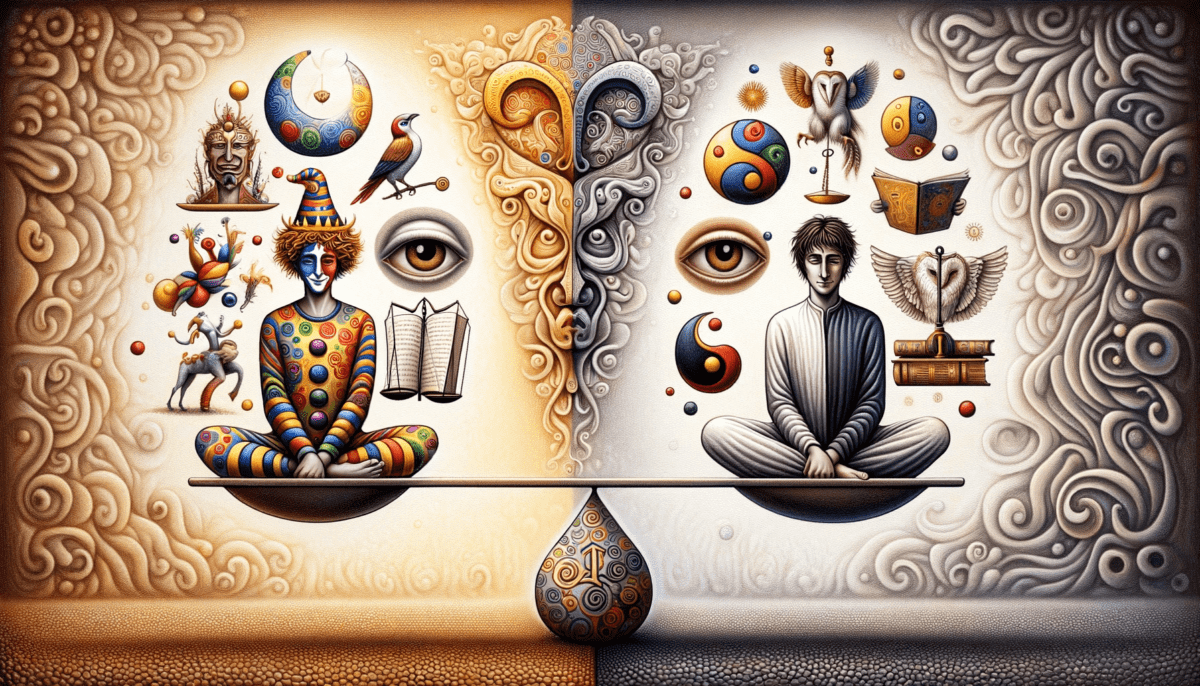

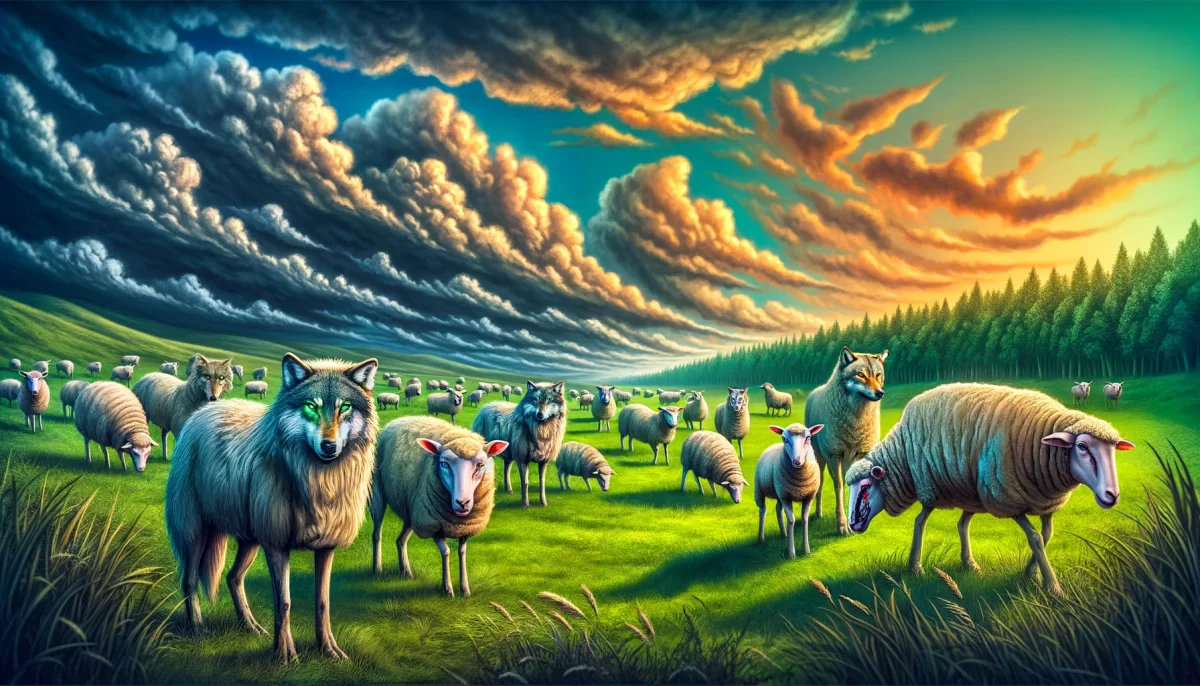
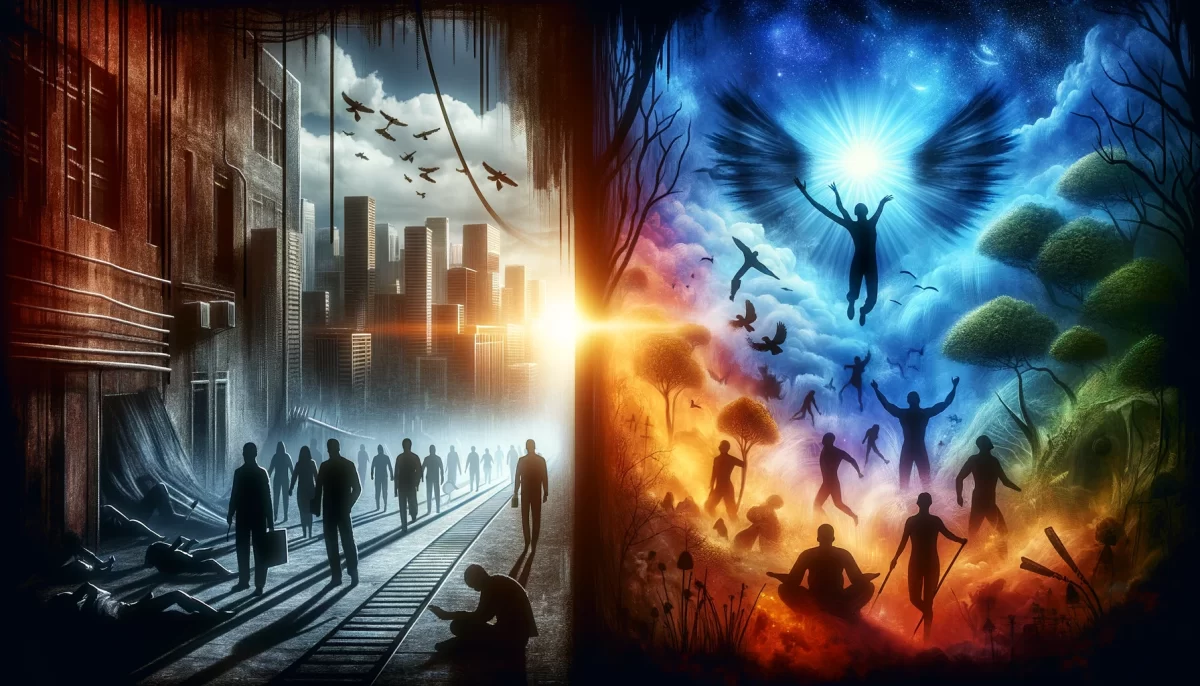
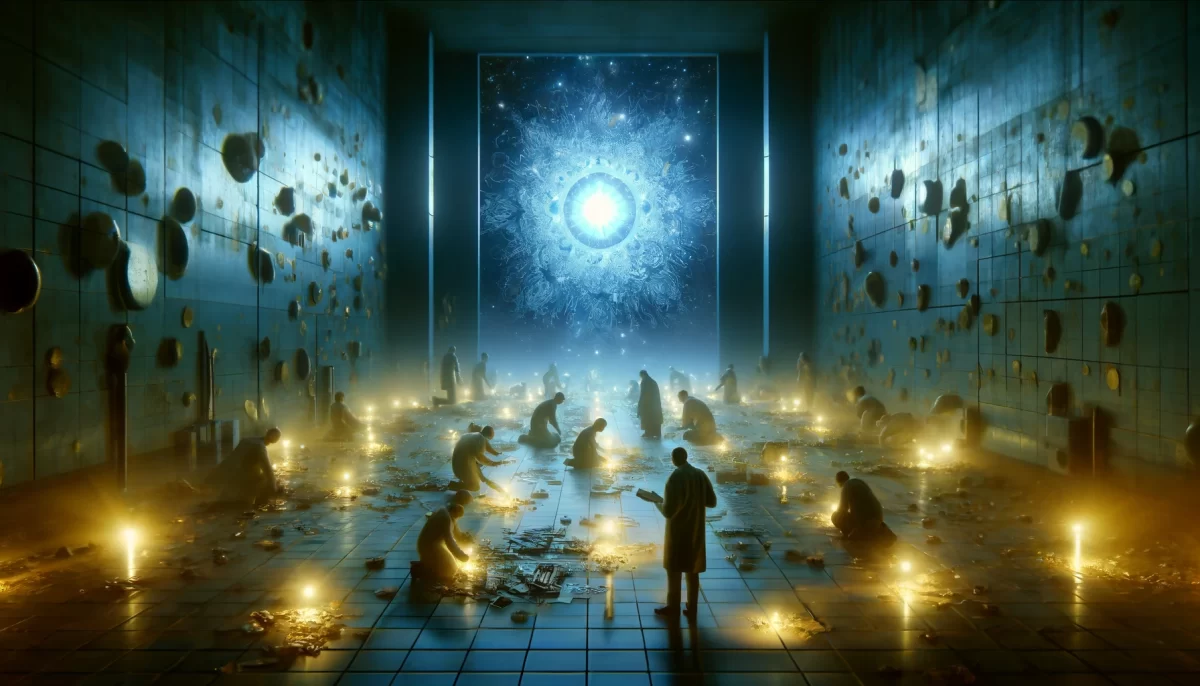
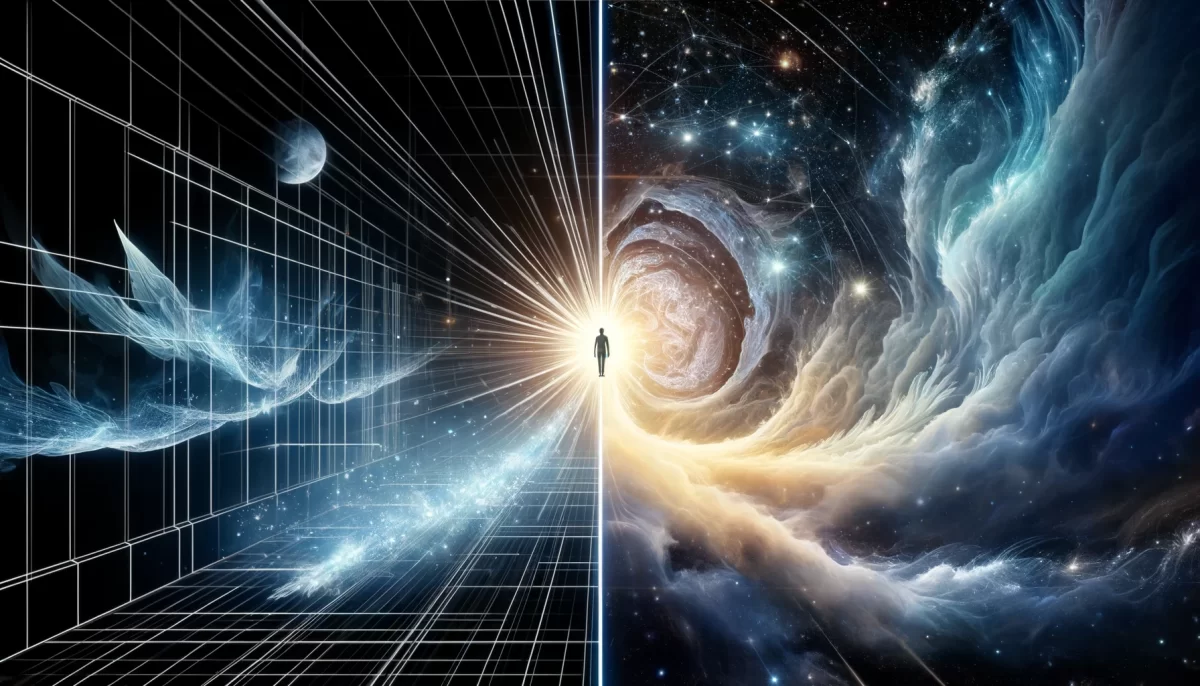


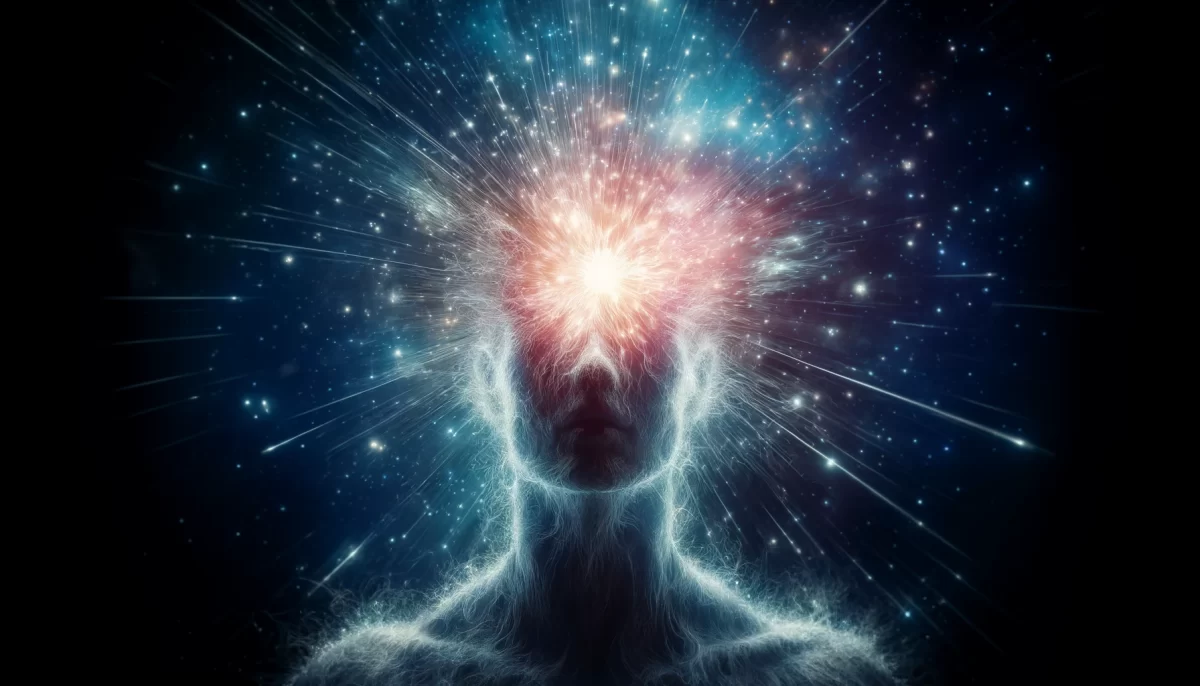




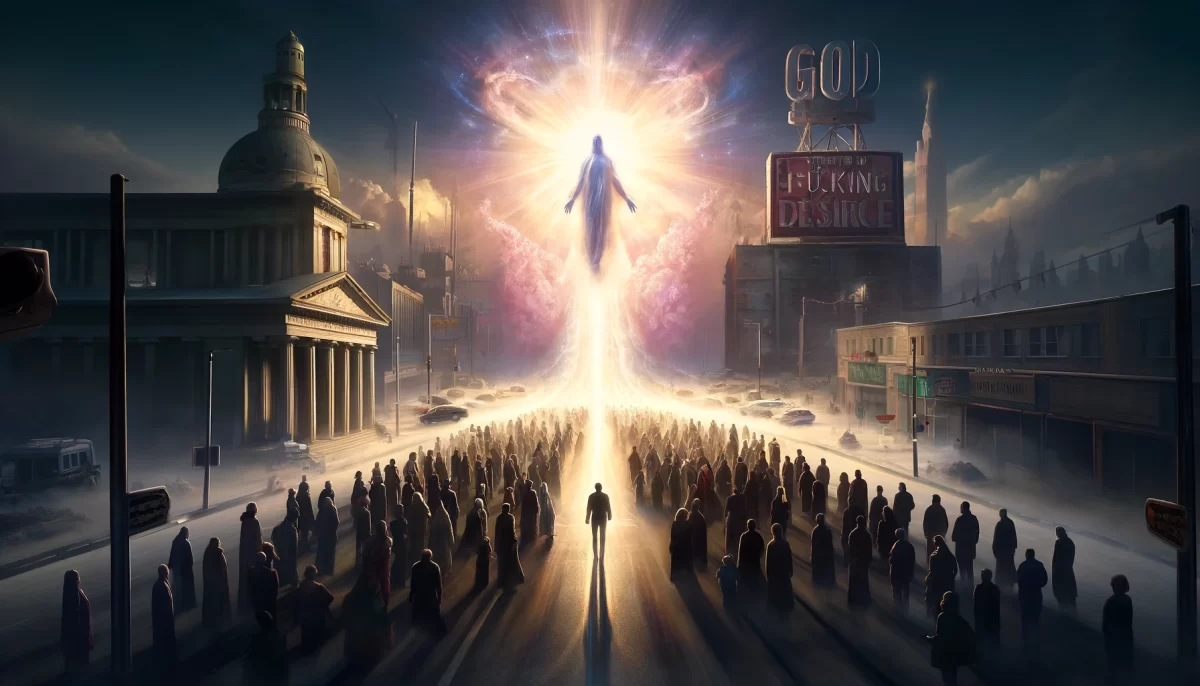





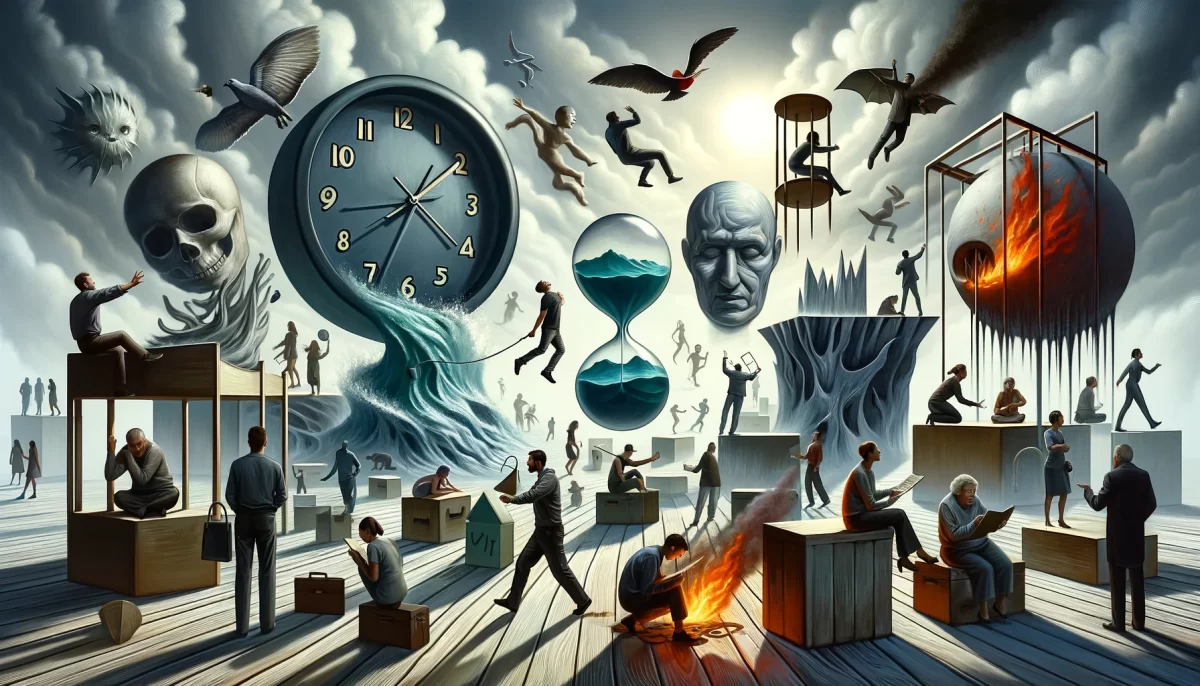

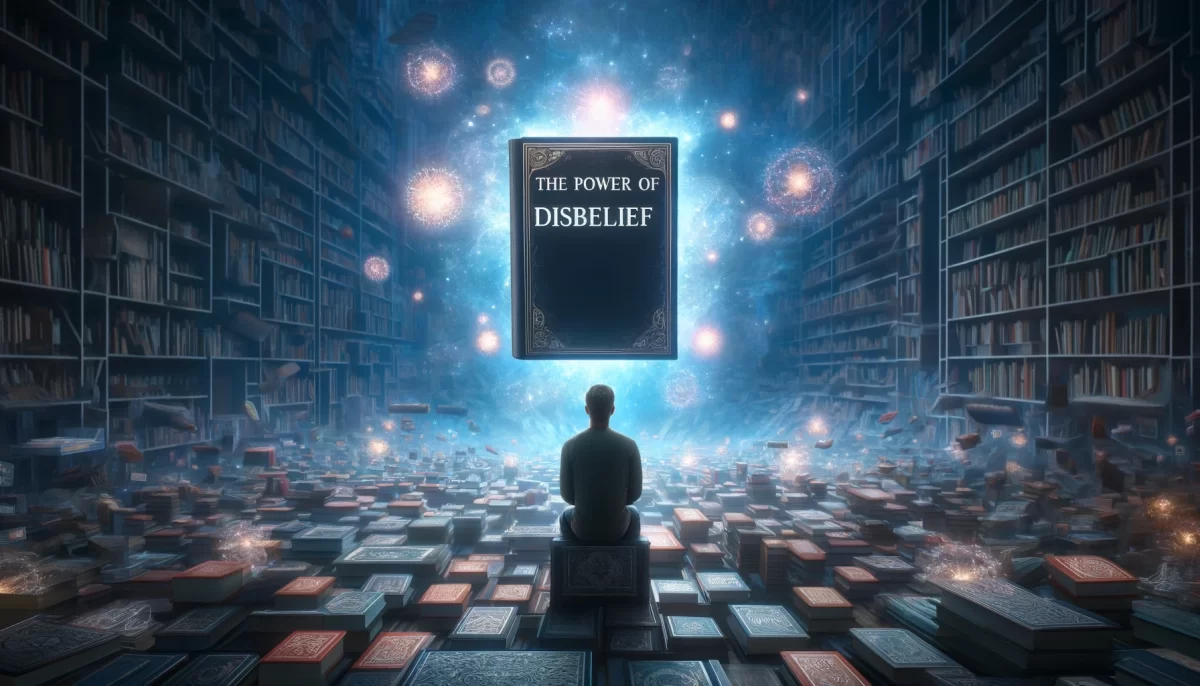


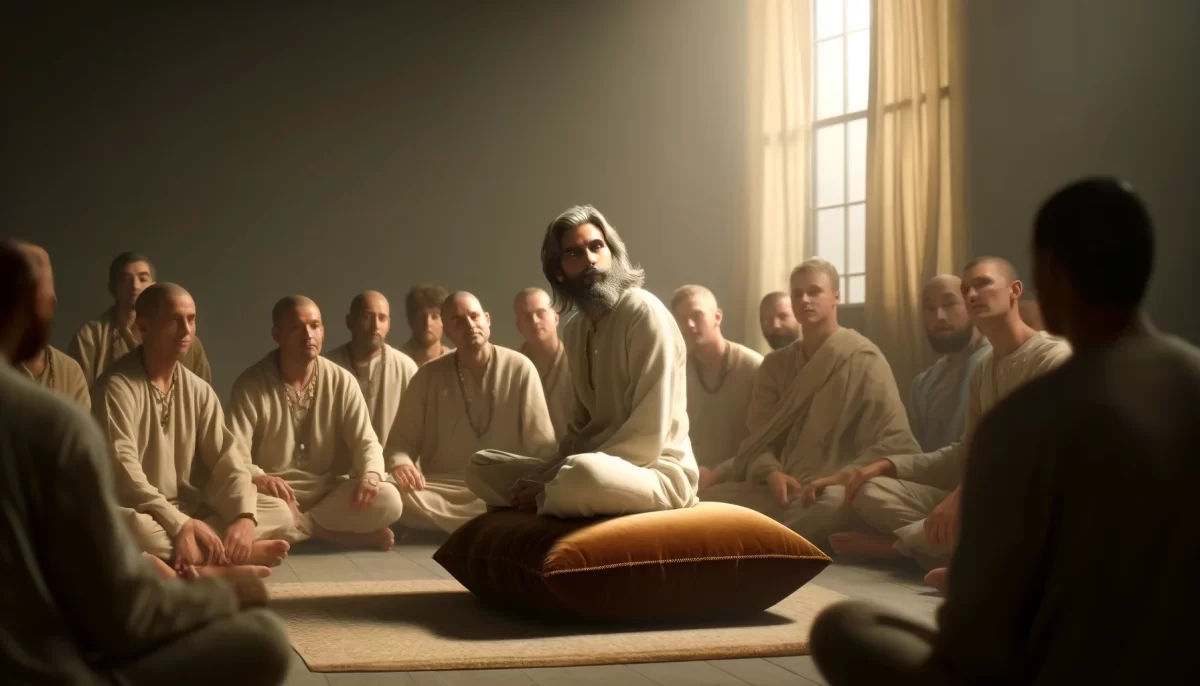
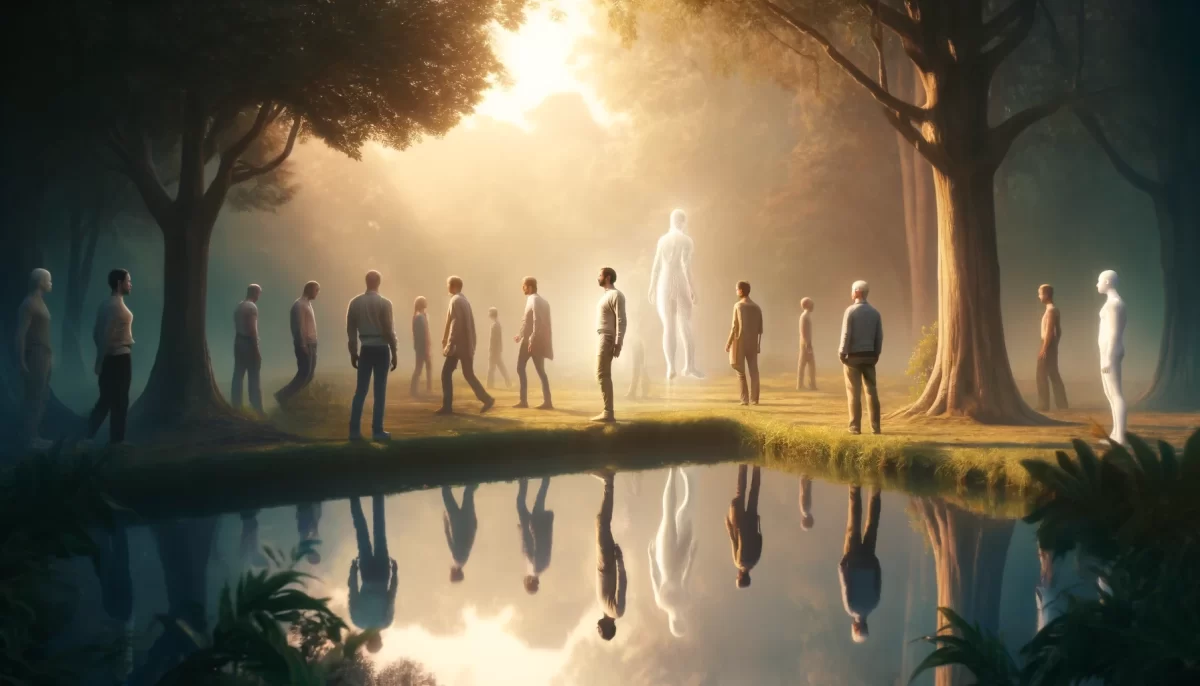



Leave a Reply